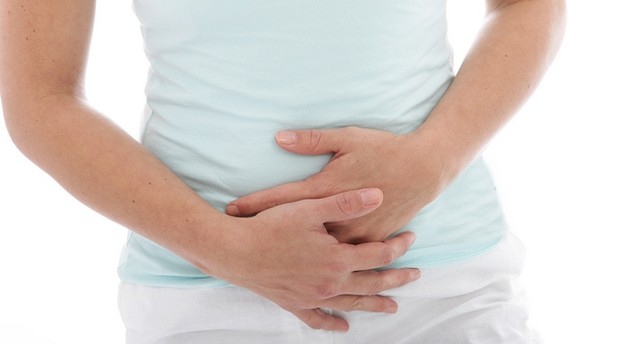Almost always when we feel something wrong with our body, we just chalked it up to a banal condition that we expect will go away by itself, or we self-medicate to feel better. Sometimes, it is true, but more times than we expect, these problems may indicate seemingly innocent major medical complications. For example, a dizziness may be a sign of heart disease in women. Hence the importance of paying attention to the messages our body sends us. This is the case with the 3 symptoms below.

3 Warning Signs that Women Must Take into Account
by healthtalk
Frequent urge to pee, abdominal pain, painful intercourse, a woman feeling one of these symptoms should promptly consult a doctor.
 |
1- Frequent urination
This condition can be described as the need to urinate more than usual, along with an increase in the frequency of urination. It may or may not accompany an increase in the amount of urine. Pain or burning sensation can be experienced by the person concerned. The causes of urinary frequency in women can vary depending on the symptoms. This may be due to hormonal changes. Changes in hormone levels during menstruation, pregnancy and menopause can increase the frequency of urination.
But, this may be also a sign of UTI, urinary tract infection, one of the common health problems in women. These infections cause inflammation and irritation of the urethra and bladder mucosa. The affected person a need to urinate frequently develop. She may also experience pain / burning sensation when urinating and urine may be cloudy and smelly. In some cases, the urine may contain blood too.
Inflammation of the bladder or interstitial cystitis is another problem, which can cause frequent urination in women. This condition reduces the ability of the bladder, causing frequent urination (day and night). In addition to increased frequency of urination, bladder pain is another symptom associated with this condition. Symptoms tend to worsen during menstrual cycles and times of stress.
In some cases, the condition can be temporary, but if you are experiencing this state for a long time, you have to seek medical attention to determine the exact cause and take treatment.
 |
2- Abdominal pain
Abdominal pain can affect the gut or urine conductive organs such as the bladder, but also to the internal female genital organs (such as the ovaries, the uterus or the fallopian tubes). Therefore, the exact location of the pain in the lower abdomen can be very different. The pain may occur in acute but also chronic form, and the latter can be periodic in connection with the menstrual cycle or be durable and depend on specific situations.
The causes of abdominal pain in women can be very different. Menstrual pains (dysmenorrhea), caused by the contraction of the uterus, are a prime example of chronic abdominal pain that occurs cyclically.
Other causes of pain in the lower abdomen can be divided ectopic pregnancy, the ovarian cyst, inflammation of the ovaries and fallopian tubes (adnexitis), the fibroid or endometriosis, tumors such as ovarian, cervical, uterine and colon cancer. Seek medical attention if this condition is recurrent or persistent.
 |
Pain during sex
Painful intercourse (dyspareunia) can affect both men and women, although it is more common in women. In some cases, it can lead to women finding these relationships unpleasant. The pain can be very varied and depends on each woman. The discomfort may be a burning, prickling or tightness, an itch or an indescribable pain to the patient. Sometimes it is spasmodic pain, and often, the woman does not reach orgasm during sex.
The pain can be divided into external or internal. External pain usually appears at the output of the vagina, while the inner pain usually occurs in the uterus or other internal structures of the pelvis (such as the rectum, bladder, ovaries, or inside the vagina).
Dyspareunia can have many causes in the case of women. The most common triggers are acute or chronic infections in urinary pathways (urinary tract) and others produced by bacteria, viruses or fungi. The most common infections are:
- Vaginal infection (colpitis);
- Infection of the fallopian tubes and ovaries (pelvic inflammatory disease, adnexitis);
- Infection of certain glands of the labia called Bartholin glands (bartholinitis);
- STDs such as trichomoniasis, gonorrhea, syphilis;
- Genital warts;
- Candida;
- Some gynecologic cancers such as cervical, vaginal and vulvar cancer;
Other causes of pain during sex are:
- Endometriosis,
- Myoma,
- Scars after childbirth, for example, after episiotomy and perineal tears,
- Congenital malformations of the internal sex organs,
- Painful reaction to a contraceptive or other intimate chemical product,
- Weakening of the vaginal wall (especially at older ages),
- Vaginal dryness (eg hormonal disorders).
Should this condition be recurrent, consult a gynecologist to uncover the cause for early treatment.
You might also like
What is Fibromyalgia and What Causes FibromyalgiaThe pain and emotional agony of fibromyalgia has stricken many American women...
How to Get Toned Firm Legs Without Hard WorkoutsGet the facts on the easiest way to get your legs in shape with as little tim...



 Why is Cooking with Coconut Oil Healthy?on 02/17/2017
Why is Cooking with Coconut Oil Healthy?on 02/17/2017
 An Overview of a Low Calorie Dieton 03/30/2016
An Overview of a Low Calorie Dieton 03/30/2016
 How Does the Health Care Reform Affect You?on 08/26/2015
How Does the Health Care Reform Affect You?on 08/26/2015
 Top 5 Foods Most Harmful For Your Heart Healthon 03/11/2015
Top 5 Foods Most Harmful For Your Heart Healthon 03/11/2015


Comments